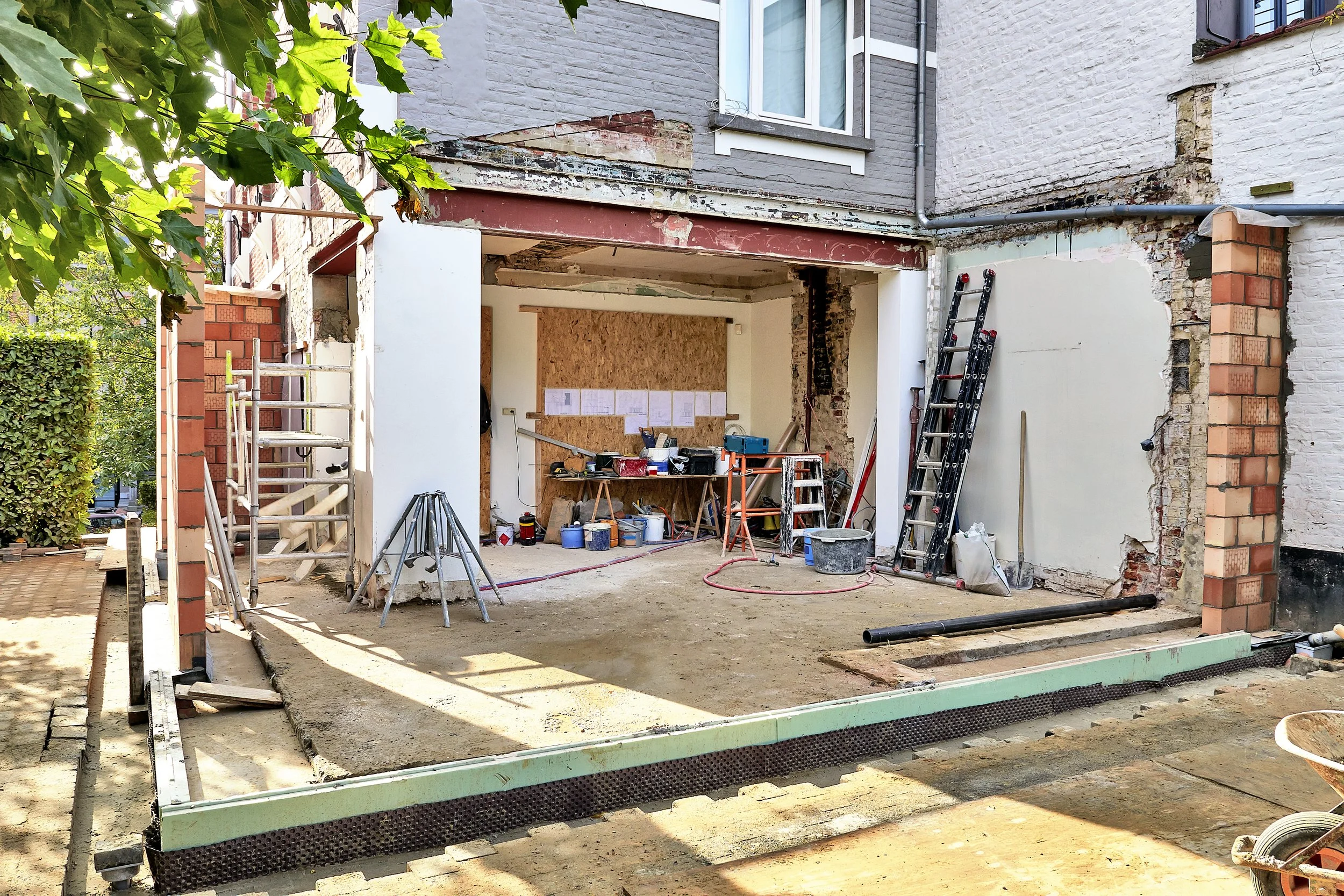Top Reasons to Put an Addition on Your Home
Adding an addition to your home can be a big investment, but it can also bring a range of benefits depending on your needs and goals. Here are the top reasons people choose to put an addition on their house:
1. Need More Space
Growing Family: If your family is expanding or your children are getting older, you might need extra bedrooms, a bigger living area, or more bathrooms to accommodate everyone. Adding square footage can alleviate overcrowding and give each family member more room.
Home Office or Study Space: With more people working or studying from home, a dedicated home office or study area is increasingly important. Adding a separate office space can enhance productivity and reduce distractions.
Guest Rooms: If you frequently have guests or family members visiting, a guest room or even a suite with a private bathroom can provide comfort and privacy for everyone.
2. Increase Home Value
Return on Investment (ROI): Home additions, particularly those that add bedrooms or bathrooms, can significantly increase your home’s resale value. If done well, an addition can give you a great return on your investment when you decide to sell.
Appealing to Future Buyers: Adding functional spaces, like a larger kitchen, more storage, or an in-law suite, can make your home more attractive to prospective buyers, especially in competitive real estate markets.
3. Better Layout or Flow
Fixing Awkward Layouts: If your current home feels cramped or the layout isn’t ideal (like having a small kitchen or a closed-off living area), an addition can allow you to reconfigure spaces to create better flow. You might open up the kitchen to the living room or add a new wing to create more connected, usable space.
Customized Design: Adding an addition allows you to design a space that better fits your needs, whether that’s a new entertainment area, more storage, or a bigger dining area. It’s a chance to fix any layout issues that have bothered you over time.
4. Lifestyle Changes
Aging in Place: If you plan to stay in your home as you age, you might consider adding features that make it more accessible, like wider hallways, a ground-floor bedroom, or an elevator. An addition can allow you to incorporate these elements in a way that suits your long-term needs.
Hobbies or Interests: If you’ve picked up new hobbies, like yoga, art, or crafting, a dedicated room for these activities can make your home more enjoyable and functional. You might also want space for a gym, home theater, or music studio.
Entertainment: If you love hosting gatherings, an addition like a larger dining room, a wet bar, or an outdoor living area can enhance your entertaining options.
5. Improve Quality of Life
Better Amenities: Adding a larger or more modern kitchen, more bathrooms, or upgraded features like a laundry room or mudroom can make daily life much more convenient and enjoyable.
Privacy: Adding a separate living space (like a guest house, in-law suite, or home office) can create more privacy for everyone in the house, especially if you have shared or tight living quarters.
6. Avoid Moving
Stay in a Favorite Location: If you love your neighborhood, school district, or proximity to work, an addition allows you to stay where you are while making your home more suitable for your current needs. This is especially true if housing prices are high or inventory is low in your area.
Emotional Attachment: Many homeowners are emotionally attached to their homes. An addition can allow you to stay in a house you love without having to leave behind sentimental memories, your garden, or the features you enjoy.
7. Expand Outdoor Living
Outdoor Space: An addition doesn’t always have to be about indoor space. If you have unused yard space, you can add a deck, patio, or sunroom that enhances your outdoor living experience, whether for relaxation, cooking, or entertaining.
Indoor/Outdoor Flow: Adding an addition that connects the indoors to the outdoors—like a large sliding glass door or an extended living space—can make your home feel more expansive and bring in natural light.
8. Renting or Income Potential
Rental Income: Adding an accessory dwelling unit (ADU) or a basement apartment can provide rental income. Many homeowners choose to rent out part of their home to help offset the cost of the mortgage or to create financial flexibility.
Airbnb or Short-Term Rentals: With the rise of short-term rental platforms like Airbnb, adding a private suite or separate living area can provide an opportunity to generate income by renting out the space to travelers.
9. Increased Functionality
Home Gym: With gyms becoming more expensive or inconvenient, having a dedicated home gym is appealing. You can add space for weights, cardio machines, yoga, or even a sauna to improve your overall quality of life.
Storage: Adding a pantry, more closet space, or a dedicated storage room can help keep your home organized and decluttered. You may also want additional storage for seasonal items, outdoor equipment, or family heirlooms.
10. Fixing Structural or Functional Issues
Renovating Outdated Spaces: Sometimes, instead of remodeling a current room, it’s more cost-effective or practical to add space. For instance, adding a new wing or floor to your home may be a better long-term solution than trying to rework an existing space that’s outdated or poorly laid out.
Foundation or Basement Additions: If your current layout doesn’t work, building up or down may be more feasible than redoing the entire floor plan. Basement or attic additions can create livable space without altering the footprint of the house.
11. Enhance Curb Appeal
Architectural Addition: Adding a stylish extension to the front or side of your house can increase curb appeal, making your home more visually appealing and impressive from the street. This is especially true if the addition blends seamlessly with the existing structure.
12. Energy Efficiency
Green Upgrades: An addition is an opportunity to incorporate modern, energy-efficient materials and systems—like better insulation, solar panels, energy-efficient windows, or smart home technology—that can lower your long-term energy costs.
13. Space for a Growing Business
Home-Based Business: If you run a business from home, an addition can give you the space you need for an office, meeting rooms, or even a small storefront or studio. A dedicated business space can create a more professional environment while also keeping work and personal life separate.
14. Custom Features
Tailored to Your Needs: An addition allows you to be highly specific about what you need in a space, whether it’s built-in shelving, custom cabinetry, or special finishes. This level of personalization can make your home feel like it’s truly designed for you.
Before committing to a home addition, it’s important to weigh the benefits and the costs. Is your current house a good long-term fit, or would you be better off moving? Do you have the necessary space or zoning restrictions for a new addition? By carefully considering these factors, you can make sure your addition enhances your lifestyle, increases your property value, and gives you the functionality you’re looking for.


